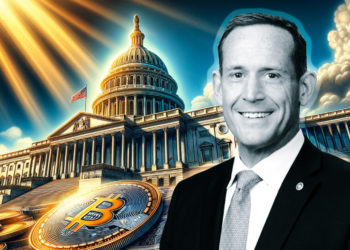JPMorgan has executed the first live trade on public blockchain as part of the Monetary Authority of Singapore (MAS) Project Guardian.
The banking giant completed the transaction using DeFi, Tokenized Deposits, and Verifiable Credentials.
Project Guardian is an initiative of MAS with financial institutions such as JP Morgan, Marketnode, and DBS Bank Ltd. Its focus is on use cases for asset tokenization and DeFi.
The pilot program saw DBS Bank, JPMorgan, and SBI Digital Asset Holdings conduct foreign exchange and government bond transactions against liquidity pools containing tokenized Singapore, Japanese government bonds, Japanese Yen, and Singapore dollars.
The participants completed a cross-currency transaction involving tokenized Japanese Yen and Singapore Dollar deposits. They also conducted a simulated trade of tokenized government bonds.
JPMorgan completes first DeFi trade.
JPMorgan’s Head of Blockchain Launch & Onyx Digital Assets, Ty Lobban, explained how the bank completed the transaction in a Nov. 2 Twitter thread.
WORLD! J.P. Morgan has executed its 1st *LIVE* trade on public blockchain using DeFi, Tokenized Deposits & Verifiable Credentials, part of @MAS_sg Project Guardian 🙌🚀🔥https://t.co/XI212SG4zg Many world 1sts here, & since this is public ⛓ here’s a transparent🧵on what we did:
— Ty Lobban (@TyLobban) November 2, 2022
According to Lobban, the bank carried out the transaction on Ethereum (ETH) layer2 network Polygon (MATIC) because of its cheap transaction fees and leveraged Aave (AAVE) Protocol’s permission pool concept.
He continued that JPMorgan issued a tokenized Singapore Dollar (TSD) deposit for the Japanese Yen. TSD is a native deposit token with stable on-chain value without the scalability issues plaguing stablecoin.
The bank used W3C Verifiable Credentials (VC) to have compliant access to Aave and built on-chain verification of VCs.
Loban said the on-chain verification “brings composability to identity,” which could be used across various DeFi protocols. He added that:
“(JPMorgan) cannot enable money laundering and must undertake KYC. Using VCs & allowlists was crucial for enabling us to use DeFi pools with certainty on these points.”
Finally, the bank built an institutional wallet to ensure that the traders can not access company funds. At the same time, trades can be carried out using only approved DeFi protocols, and all trade institutions have VCs.
Credit: Source link












































































































































